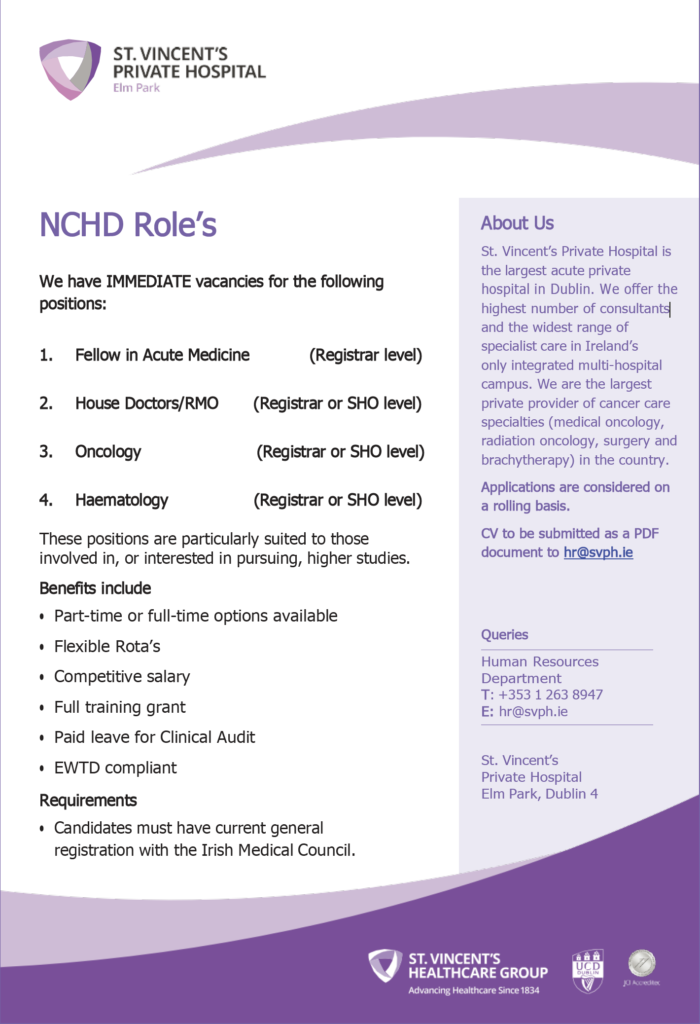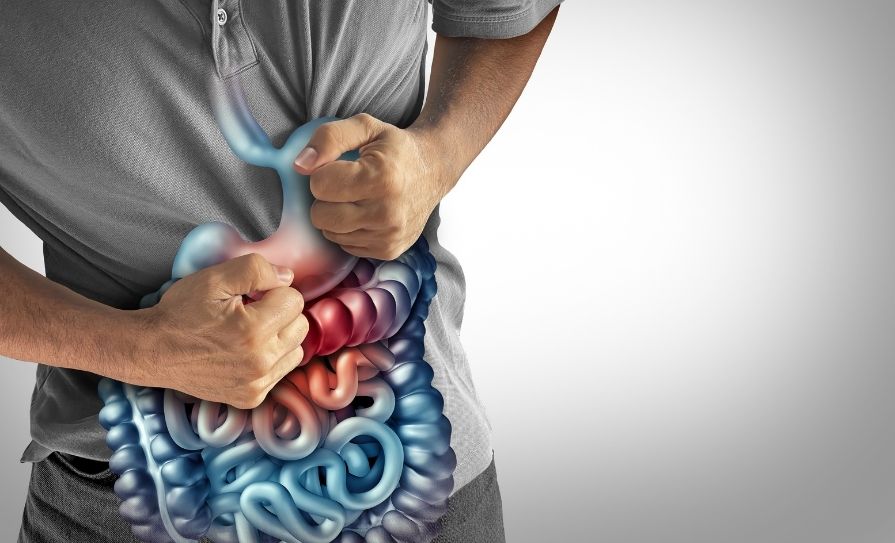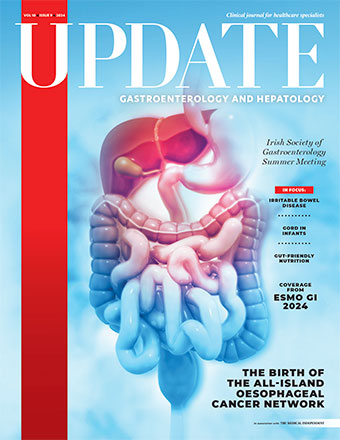Irish and international experts gathered recently in Dublin to discuss the latest advances in technology for investigation and treatment of patients with intestinal and bowel disorders.
The 29th Annual Scientific Meeting of the Centre for Colorectal Disease (CCD) at St Vincent’s University Hospital/UCD School of Medicine, Dublin, took place on 9 September in St Vincent’s Hospital for the first time in three years.

The meeting addressed the application of cutting-edge and emerging technology in the areas of colorectal cancer, Crohn’s disease, and colitis, and featured talks from a number of high-profile speakers on how artificial intelligence (AI) is shaping changes in the fields of pathology, radiology, colonoscopy (use of camera technology), and colorectal cancer.
Speakers included Prof Joe Willis from Case Western University, Cleveland, US, and Dr Gerard Healy, a newly appointed radiologist at St Vincent’s/UCD, who has worked on the role of AI in radiology in Toronto for the last few years.
Both speakers highlighted the potential for AI to assist the work of the pathologist examining biopsies down the microscope or the radiologist examining x-rays and scans to highlight potentially abnormal findings and ‘speed up’ their work flow. However, it is clear that at the moment AI cannot replace clinical judgement by a reporting radiologist or pathologist.
Both speakers also highlighted the importance of validation of AI tools in different populations of patients and in different healthcare settings to ensure they are robust for use in the real world of healthcare.
Dr Barry Hall, Gastroenterologist at Connolly Hospital Dublin/RCSI, spoke about recent developments in capsule endoscopy. This is a technology that is evolving rapidly, but at present it takes a gastroenterologist up to an hour to review the thousands of images captured in a single examination. Once AI becomes available to screen all the images the capsule generates and identify potentially abnormal findings, this has the potential to reduce the reading time from hours to minutes.
Prof Ronan Cahill, Professor of Surgery at UCD and a Colorectal Surgeon in the Mater Misericordiae Hospital, Dublin, spoke about the use of imaging technology and AI to guide decision-making by surgeons. “Most of the time an experienced surgeon will instinctively know where to make a cut in the bowel, but smart imaging and AI-based technology can assist in the minority of cases where the surgeon is uncertain,” said Prof Cahill.
Prof Louise McHugh, School of Psychology, UCD, introduced another novel application of technology currently being evaluated for the care of patients living with chronic conditions, such as Crohn’s and colitis. These people often suffer psychological distress arising from their illness and it can be difficult to get access to psychological supports. In work carried out in collaboration with Prof Hugh Mulcahy and colleagues at St Vincent’s, Prof McHugh discussed how using ‘chatbots’ to deliver automated psychological supports to patients at times of stress and distress is showing very promising initial results.
One particular highlight of the meeting was the live streaming of procedures from the endoscopy unit at St Vincent’s as part of the meeting. Prof Glen Doherty, Consultant Gastroenterologist at St Vincent’s and full Clinical Professor in UCD School of Medicine and National Training Lead for GI Endoscopy, introduced a live demonstration of the use of AI during a colonoscopy procedure to assist in identifying polyps (which left untreated might progress over time to cancer). “This technology has great potential to assist those training to perform colonoscopy to find polyps and to know which to remove and which can be ignored,” he said.
The highlight of the meeting was when Prof Doherty introduced a state-of-the-art lecture by Dr Marietta Iacucci, a world expert in the use of endoscopy in patients with Crohn’s and colitis. She has been centrally involved in European and international studies to evaluate the latest technological advances. “We are extremely excited to welcome Marietta to Ireland, as she joins the community of gastroenterologists in Ireland at a time when we need such expertise,” commented Prof Doherty. Dr Iacucci takes up a position as Professor of Gastroenterology at University College Cork later this year.














Leave a Reply
You must be logged in to post a comment.